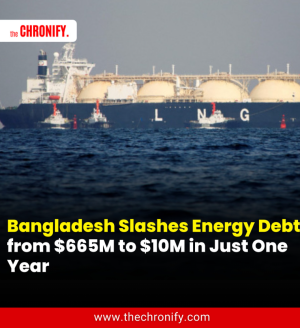Only four months ago, in January, the World Bank projected a more hopeful 4.1% growth. However, that optimism has now faded, battered by a toxic mix of falling investments, persistently high inflation, financial sector instability, and deepening political uncertainty .
The downgrade is more than an academic adjustment – it signals a worsening human crisis. Behind every percentage point in GDP lies millions of livelihoods under threat, and for Bangladesh, the story is turning darker.
Poverty on rise as economic struggles deepen
The World Bank's Macro Poverty Outlook, published today (23 April) as part of its South Asia Development Update, presents an alarming scenario: between FY24 and FY25, millions of Bangladeshis are expected to slide into extreme poverty, living on less than $2.15 per day.
"High inflation and job losses have severely impacted welfare, especially for low-income households. In the first half of FY25, nearly 4% of workers lost their jobs, while wages fell by 2% for low-skilled workers and 0.5% for high-skilled workers," the report states.
According to the Washington-based lender, extreme poverty is set to rise to 9.3% in FY25, up from 7.7% the previous year, pushing 3 million more people into economic hardship.
Inequality, already on an upward trajectory for several years, is expected to worsen, with projections indicating a rise of one full Gini point. While remittance-receiving households may experience some relief, the majority – three in five families – are likely to deplete their savings to cope with economic shocks .
Political uncertainty, global risks weigh on growth prospects
The World Bank also warns that domestic political instability and global trade policy uncertainty could further weaken investment, exports, and overall economic growth. However, some external pressures have eased, with signs of narrowing balance-of-payment deficits and stabilising foreign exchange reserves.
"Downside risks to the outlook have increased substantially. Political instability ahead of the elections, international trade disruptions, weak reform implementation, persistent inflation, seasonal energy shortages, and banking sector vulnerabilities could further drag economic activity,"
Only four months ago, in January, the World Bank projected a more hopeful 4.1% growth. However, that optimism has now faded, battered by a toxic mix of falling investments, persistently high inflation, financial sector instability, and deepening political uncertainty

www.tbsnews.net
























